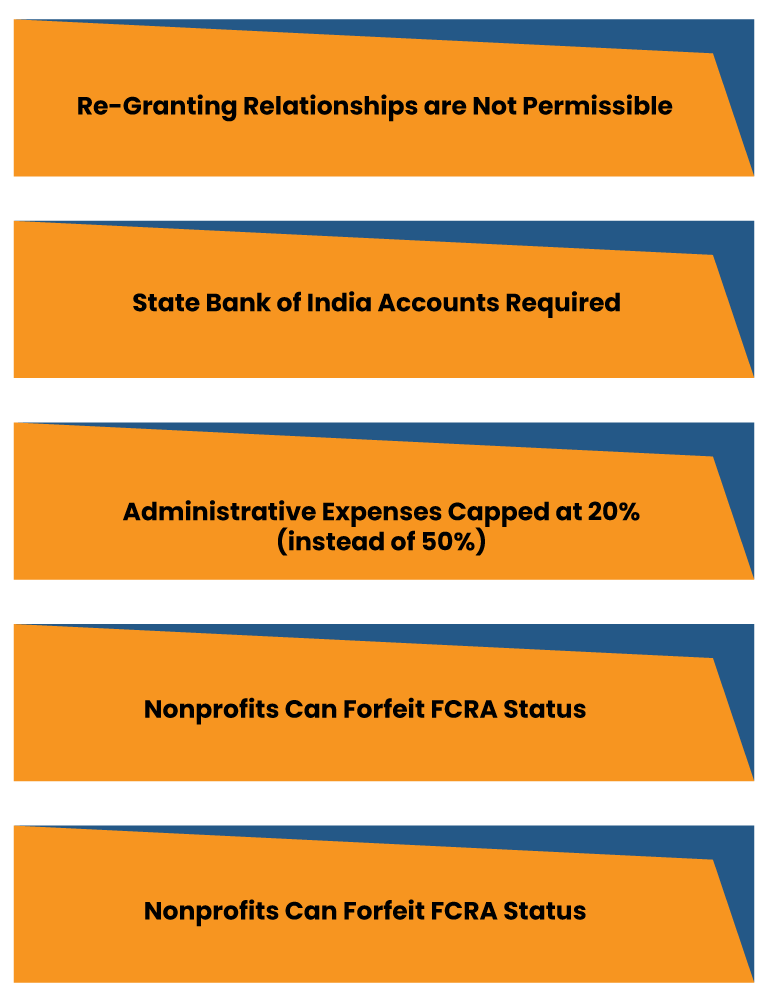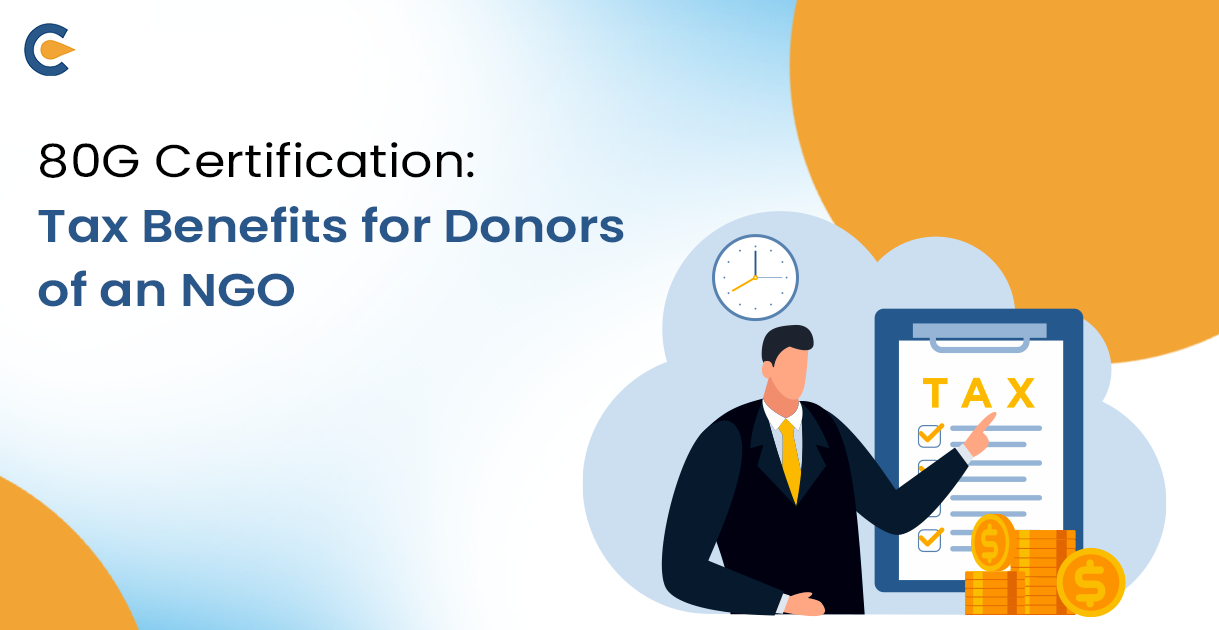Non – governmental organisation (NGO) is a widely accepted term for referring to a legally constituted body working for a social cause for uplifting the society. NGO is created by natural or legal person without any representation or participation by the government. The major function of the NGO is to give its commitment for the social justice, human rights and sustainable development. They are mainly focused and committed to the right to information for the under-represented people and to promote the sustainable development initiative in response to the needs of the marginalised sectors and of the society. Hence, as NGO is working for so many causes it receives a huge support in the form of contribution and charity from the individuals, companies, government funding, foreign funding and other multiple agencies. In this article, we will know about those NGO’s intending to receive foreign funding and the government’s new rules associated with it.
Government’s New Rules on Foreign Funding to NGO
On September 28, 2020 a new law was signed with the purpose to greatly constrict and limit the existing Foreign Contribution Regulation Act (FCRA). FCRA is the foundation law that regulates and manages on how the nonprofits in India are able to receive the foreign funding, including from U.S.-based foundations and other corporations.
The law is expected to impact the ways how the foundations and corporations make grants to Indian NGOs, in several important ways. In the notification, the home ministry has asked the office bearers of the NGOs looking for the registration under the Foreign Contribution (Regulation) Act that they must mandatorily submit the specific letter of commitment from the donor demonstrating the amount of the foreign contribution and the purpose behind its proposal has to be given.
The FCRA rules were brought after two months since the central government has amended the law making it mandatory for the office bearers of the NGOs to provide with their Aadhaar numbers. The profit of the office expenses were lessened to 20 percent of the amount and all the election candidates, political parties, government servants, legislature members were prohibited from accepting the foreign funding.
Read our article:How FCRA Registration Makes Foreign Contributions Process Hassle-Free for NGOs?
What are the Key Highlights of the Notification?
Under section 12 (4) (b) of the Act if any person is seeking registration, then he shall conform to the following conditions, namely:–
- It should mandatorily be in existence for three years and must have spent a minimum sum of rupees fifteen lakhs on its major and core activities for the advantage of the society throughout the duration of last three financial years.
- In accordance with the principles, if any particular person or any NGO making an utility for the purpose of obtaining the prior permission to receive the foreign funding shall already have an FCRA Account.
- FCRA is made stringent by prohibiting the transfer of the funds from one NGO to other, and also has decreased the administrative expenses through the foreign funds from the earlier 50 per cent to 20 per cent, besides making aadhaar obligatory for registration, and given the government the powers to end utilisation of the foreign contribution through a summary enquiry.
- Every member of the NGO by taking an oath must certify that they have not been involved in “diverting” any foreign funds or indulged in propagating “sedition” or “advocating any violent means” through an affidavit
- Earlier only the applicants and the persons on director-level were responsible to give this declaration but now it is mandatory for all the members of the NGO to give this declaration.
- The Centre said that in case where the value of foreign funding is above Rs one crore, it may be agreed to be given in installments but subject to the condition that the subsequent and second installment shall be given only after submitting the proof about the utilisation of 75 per cent of the foreign funding that is received in the previous installment. It will be allowed only after the field inquiry of the use of the foreign contribution.
- According to the market value of the gift item in India, earlier it was Rs. 25,000, but now it has been increased to the sum of Rs. one lakh.
- If any person from NGO gets hospitalized anytime during his foreign visit, then within one month such person has to intimate the Government.
- Centre has inserted Rule 9 – which has made it mandatory for seeking prior permission or obtaining registration to receive the foreign funds.
What could be the Possible Impact for Changes Made in FCRA?
Within the law, there are four major changes that will most probably impact the grant makers that are supporting Indian grantees: –


Re-Granting Relationships are Not Permissible
Any grant made to Indian NGO will not permit sub-granting or re-granting. This means that those funders who presently use FCRA-registered non profits as a re-granter may no longer support other FCRA-registered Indian nonprofits. Furthermore, the Indian nonprofits that provide as lead implementers on a particular project will now no longer be able to create sub-grant relationship with other nonprofits using the foreign funding.
State Bank of India Accounts Required
Earlier, those nonprofit organizations receiving foreign funding under the FCRA was required to create their account in any government-approved bank. Under the recently amended FCRA, it is mandatory for all those nonprofits to create and solely use their new account with the State Bank ofIndia at New Delhi[1].
Administrative Expenses Capped at 20% (instead of 50%)
Under the existing FCRA, the administrative expenses are capped from the earlier 50% to now 20% of the received foreign funds.
Nonprofits Can Forfeit FCRA Status
Under the amended FCRA, there is now a way for the nonprofits in India to voluntarily forfeit their FCRA registration but the assets that are formerly created with the foreign funds will have to be transferred to the proper government arm.
Conclusion
With the Government’s new rules on the NGO’s intending to receive foreign funds it will bring more accountability and transparency in the non profits sector. Hence, this will lead to betterment of the NGO sector with strict budgetary provision and promoting humanitarian works.
Read our article:What is the process to get FCRA registration?











